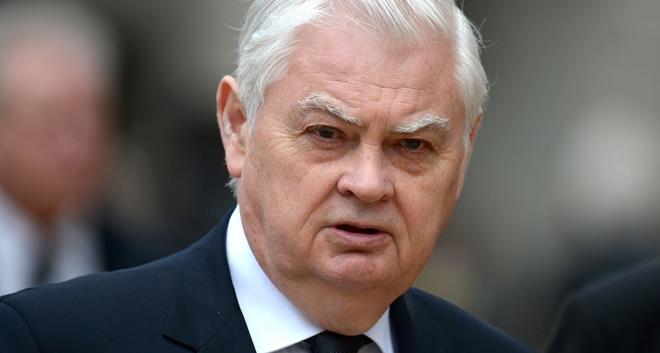Lord Lamont, former Chancellor of the Exchequer and cabinet member for Margaret Thatcher and John Major, spoke at the 6th Limassol Economic Forum which took place on October 21 at the Four Seasons hotel regarding recent and future developments in the international economy and the Eurozone.
He congratulated Cyprus for the progress making after a traumatic period and referred to the fact that Margaret Thatcher was unreasonable and unpredictable which is how she would get things done.
He further mentioned that “We are obliged by law to make economic forecasts on various factors such as inflation and unemployment even though they are always wrong,” which is why he disagrees with this method. He also added, “We do not know what will happen in the future and we don’t know what happened in the past because the statistics are always being revised.”
With regards to the International economy, Lord Lamont pointed out the inability of banks to recover quickly as well as the elevated government and private debt. “Economists had predicted interest rates would rise and inflation would rise but they were proved wrong,” he explained.
“Deflation of China coming into the Eurozone is a dramatic change,” Lord Lamont stressed and continued, “it is important to know what is happening in the economy of Asia and China.” He added, “It is definitely true that China’s economy has been slowing dramatically as imports have fallen by 20% in the last year which affects investment and the property market.”
Pointing out that economic growth is currently coming from the developed world and particularly the USA while china is slowing down, Lord Lamont said, “i do not think China will collapse. Emerging markets will start growing again, but we will face a world with low inflation.”
Furthermore, he underlined that the situation in Greece has not been entirely resolved and agrees that the euro produces more tension rather than cooperation between countries as they have different expectations from common institutions.
“Mistakes were indeed made by Greek governments but when Syriza came into power and the GDP had already fallen 25%, austerity measures were going to make things worse. In this case, Reforms were needed,” Lord Lamont explained.
As concerns the future of the economy, he stated, “I see a very slow long-term growth for the Eurozone,” and mentioned that even If the Eurozone manages to lift up its growth rate it does not mean it is operating properly.
“Although I am a Eurosceptic, I would not vote for the UK to leave the Eurozone as that would mean very big policy changes for the country which could be bad for businesses,” Lord Lamont said and concluded, “David Cameron is not only talking about renegotiations, he is talking about reform that will not only benefit Britain, but Europe as well.”
He congratulated Cyprus for the progress making after a traumatic period and referred to the fact that Margaret Thatcher was unreasonable and unpredictable which is how she would get things done.
He further mentioned that “We are obliged by law to make economic forecasts on various factors such as inflation and unemployment even though they are always wrong,” which is why he disagrees with this method. He also added, “We do not know what will happen in the future and we don’t know what happened in the past because the statistics are always being revised.”
With regards to the International economy, Lord Lamont pointed out the inability of banks to recover quickly as well as the elevated government and private debt. “Economists had predicted interest rates would rise and inflation would rise but they were proved wrong,” he explained.
“Deflation of China coming into the Eurozone is a dramatic change,” Lord Lamont stressed and continued, “it is important to know what is happening in the economy of Asia and China.” He added, “It is definitely true that China’s economy has been slowing dramatically as imports have fallen by 20% in the last year which affects investment and the property market.”
Pointing out that economic growth is currently coming from the developed world and particularly the USA while china is slowing down, Lord Lamont said, “i do not think China will collapse. Emerging markets will start growing again, but we will face a world with low inflation.”
Furthermore, he underlined that the situation in Greece has not been entirely resolved and agrees that the euro produces more tension rather than cooperation between countries as they have different expectations from common institutions.
“Mistakes were indeed made by Greek governments but when Syriza came into power and the GDP had already fallen 25%, austerity measures were going to make things worse. In this case, Reforms were needed,” Lord Lamont explained.
As concerns the future of the economy, he stated, “I see a very slow long-term growth for the Eurozone,” and mentioned that even If the Eurozone manages to lift up its growth rate it does not mean it is operating properly.
“Although I am a Eurosceptic, I would not vote for the UK to leave the Eurozone as that would mean very big policy changes for the country which could be bad for businesses,” Lord Lamont said and concluded, “David Cameron is not only talking about renegotiations, he is talking about reform that will not only benefit Britain, but Europe as well.”









